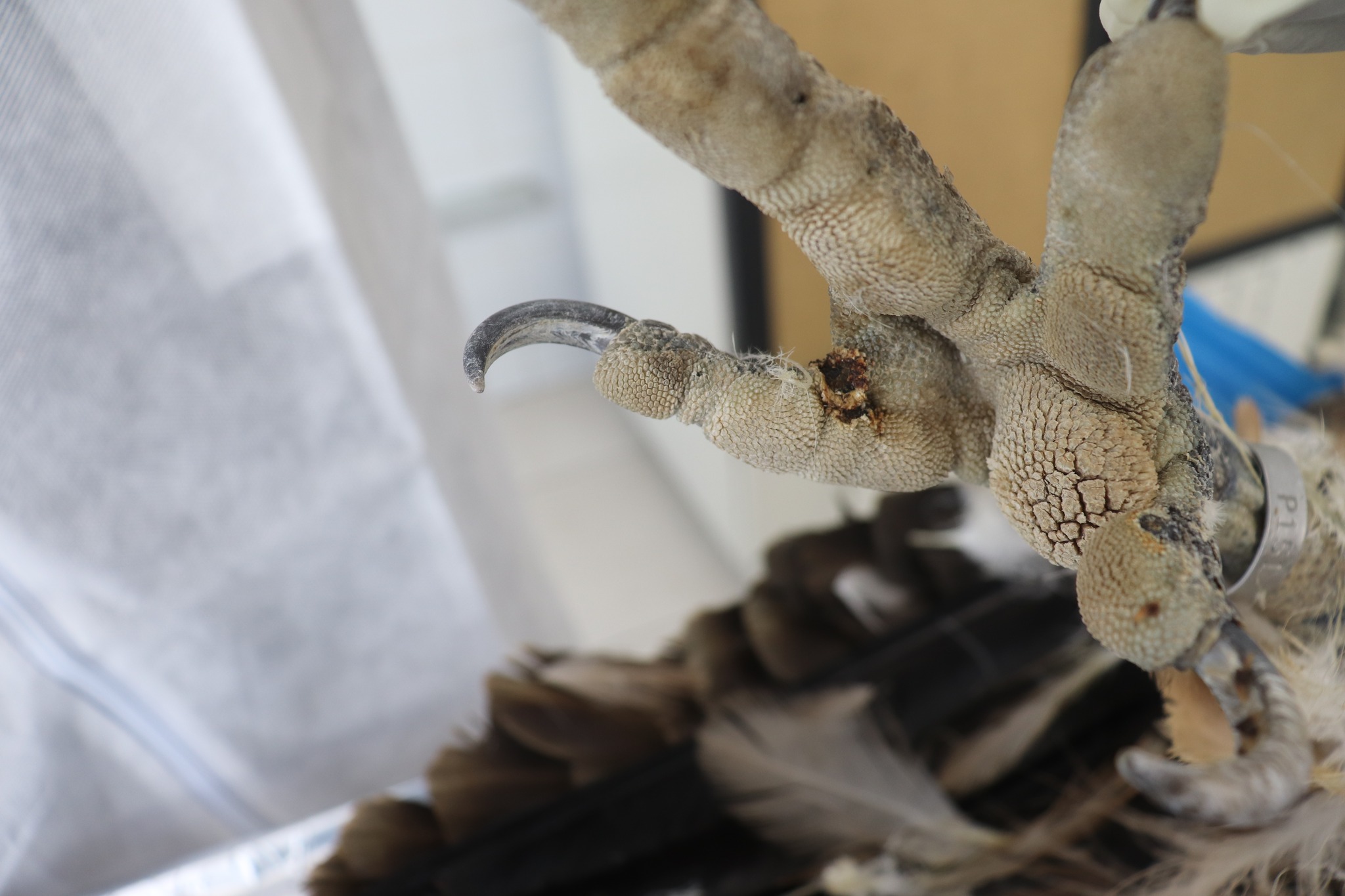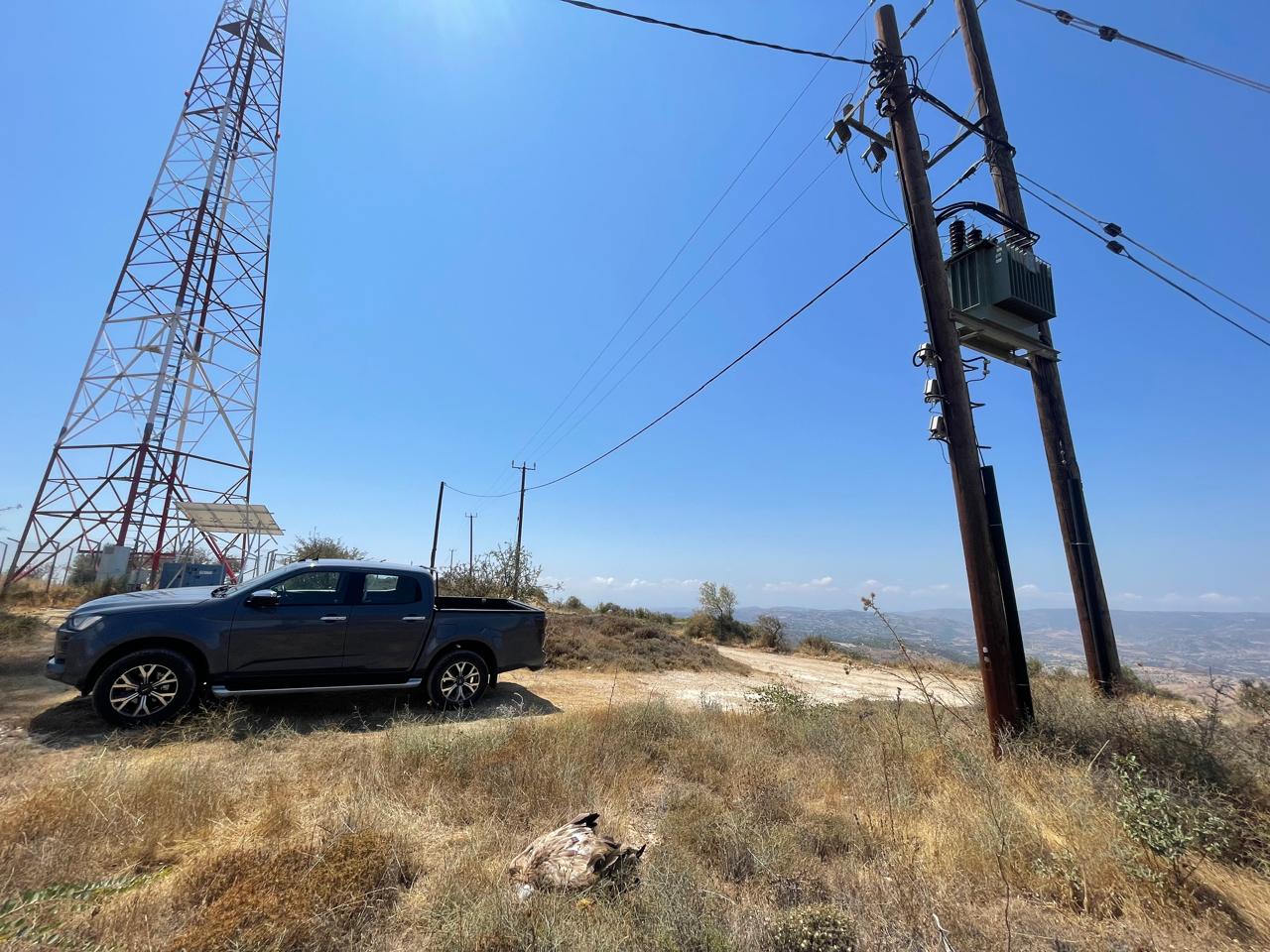Two more Griffon vultures have been found dead from electrocution on the power distribution network in Cyprus, NGO Birdlife has announced.
The latest fatalities bring the number of vultures killed by electrocution to six in 2024.
The first set of vultures to die from electrocution was in May, followed a few weeks later by another pair, and now by the latest two.
“As the vulture population grows and more birds are fitted with GPS tags, more information is coming to light concerning the threats they face,” the NGO said.
They added that until 2022 there were no recorded vulture deaths by electrocution in Cyprus.
However, now that more are being fitted with GPS tags, the NGO said it is evident the situation is “dire, as electrocution is now the second most significant threat to Griffon Vultures on the island, something that is also true in other countries”.

The deaths concern two female vultures, Iris and CAN, aged three and one respectively, which were brought to Cyprus from Spain as part of efforts to halt the extinction of the species.
“These two recent incidents took place this month, the first on August 2 at an electricity pole near Ayios Ioannis in Paphos, and the second on August 25 at an electricity pole that powers a Cyta antenna in Pentalia,” the NGO said.
The cause of death of the two birds was confirmed by the necropsy carried out by the Veterinary Services.
“These two powerlines are within key areas used daily by the vultures and insulating them or redesigning them should now be a priority to prevent further losses,” Birdlife added.
According to Birdlife, the Electricity Authority of Cyprus (EAC) has been notified.
“We urgently call upon them to address this issue by redesigning the dangerous pole structures or implementing effective insulation.
“Despite recent efforts by the EAC to insulate poles at Kelokedara after three previous vulture electrocutions, the insulation remains insufficient, leaving more vultures at risk,” the NGO said.
They added that this threat needs to be a priority for all relevant agencies to prevent further loss of this threatened species.
In a subsequent statement, the NGO explained the rationale for continuing to import vultures, despite the mortality rate is high.
“The vulture is a strictly protected species under European and national legislation, and its loss would have serious ecological consequences. If no immediate action is taken, the species will become extinct within the next 15 years. It is our duty to protect this iconic species and ensure its continuity for future generations,” the NGO said.
They added that boosting the vulture population is essential, as the local population cannot recover on its own due to its slow breeding rate.
“Vulture population augmentation with individuals from other countries began in 2012 when the population numbered only eight to ten birds and indeed the halt to extinction was successful. However, these efforts must continue as the vulture population remains critically low,” Birdlife said.
Until 2022, there had been no recorded cases of vulture electrocution in Cyprus.
“However, the transmitters carried by vultures reveal that electrocution is the second biggest threat to the species, after poisoning. Technical solutions are available, such as undergrounding cables where possible, appropriate insulation, markings and redesign,” the NGO said.
Their implementation is up to EAC in collaboration with avian experts.
“We are already seeing some positive response from EAC and we will continue to push until adequate measures are implemented.
“We as BirdLife, in collaboration with the relevant authorities, continue our intensive efforts to recover the vulture population, while focusing on mitigating the main threats (poisoning and the power grid) that undermine conservation efforts and threaten the species with extinction,” the NGO said.







Click here to change your cookie preferences